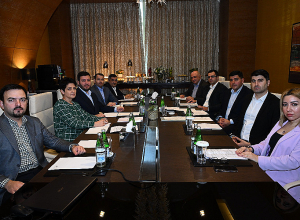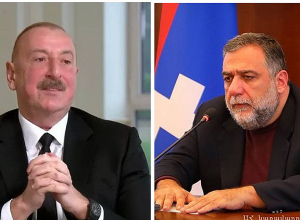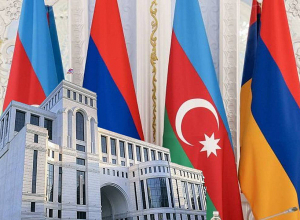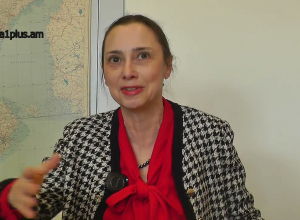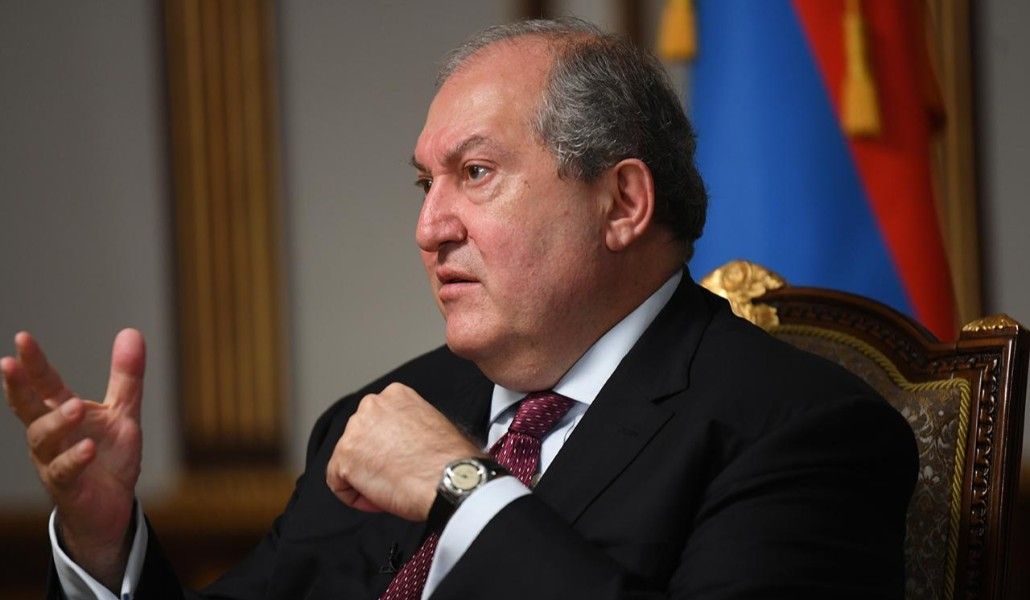
Ankara’s actions in the Caucasus could also pose a threat to the EU, Armenia’s President Armen Sarkissian told Politico
Support A1+!Armenian president wants NATO to explain Turkish involvement in Nagorno-Karabakh.
Famous analyst Ben Judah conversed with the President of Armenia Armen Sarkissian. He referred to that interview In POLITICO and published an article on the Nagorno Karabakh conflict and present situation. Its abridged and translated version is presented below.
Armen Sarkissian says Ankara’s actions in the Caucasus could also pose a threat to the EU.
Armenia’s president is demanding answers from NATO over the involvement of Turkey in the Nagorno-Karabakh war. Armen Sarkissian says he’s ready to travel to Brussels to confront the transatlantic alliance over Ankara’s actions in the Caucasus and warn the European Union of the threat they pose to the bloc’s security.
“If I go to Brussels,” he said in an interview with POLITICO, “I would like to speak to the NATO leadership as to why this very strange situation is taking place where Turkey, a full NATO member, is involved in a war that has nothing to do with NATO. How on earth is it that a NATO member is acting as freely as a cowboy and NATO does nothing? Does this mean they have a green light from NATO?”
Turkey threw its weight behind traditional ally Azerbaijan when the frozen conflict over Nagorno-Karabakh reignited last month. The fighting has cost hundreds of lives, with both sides accusing each other of killing civilians.
Armenia is accusing Turkey of sending fighter jets and Syrian mercenaries to Azerbaijan. Ankara has denied this, though several media reports have documented the presence of Syrian fighters and F-16s. Azerbaijani President Ilham Aliyev has acknowledged Turkish F-16s are present in the country but claimed they were not used in the fighting.
Sarkissian said he wanted to visit NATO’s Brussels headquarters to “get explanations” as to why “Turkish weapons, drones and F-16 are involved in the process of bombing Armenia and Armenian civilians in huge numbers. These are NATO-made weapons: the engines from Austria, the avionics are from Canada and the parts of the rockets are from Britain and so on.”
Sarkissian said he was also ready to travel to Paris, London and Berlin to make Armenia’s case to European leaders. “I am ready to tell [Angela] Merkel,” he said, “that I understand that Europe is busy with other things and everyone is busy with COVID-19, but dear Madam Chancellor what you are probably not seeing clearly is that there is another disaster coming from the Caucasus to you that is not a biological virus but the virus of instability and war.”
Sarkissian said he wanted the German chancellor to understand that “the war of Turkey and Azerbaijan risks creating another Syria. Or making Turkey the creator and the ruler of an energy crisis to Europe.” (Pipelines crucial to the EU’s energy supply pass close to Nagorno-Karabakh.)
In contrast, he does not feel the need to remind French President Emmanuel Macron about the conflict’s potential geopolitical ramifications. “I think that Macron understands that instability in the Caucasus is going to hit the larger region and then it will affect Western Europe,” Sarkissian said.“He understands that the Turkish presence in Azerbaijan will make Southern Europe and Central Asia all dependent on Turkey and Turkey will emerge as a regional superpower and that is what [Turkish President Recep Tayyip] Erdoğan wants to achieve.”
France, home to a sizable Armenian minority, has seen a bill introduced to the parliament to recognize the Republic of Artsakh or Nagorno-Karabakh. Armenian Prime Minister Nikol Pashinyan has said he expects France to recognize Nagorno-Karabakh but a measure actually passing remains highly unlikely.
Sarkissian said he would be “very happy” if France recognized the breakaway region. “As Armenians, we have always believed that a solution has to be reached through peaceful negotiations and in order not to make things worse, this has restrained us from recognizing the Republic of Artsakh until now.” He added: “But of course if we don’t see light at the end of the tunnel we will recognize Nagorno-Karabakh.”
Armenia is seeking to present the war to Brussels as part and parcel of Turkey’s growing assertiveness, which has brought Ankara into conflict with EU member countries across the region. In Libya, Turkey has intervened on behalf of the U.N.-backed government against France-backed militia leader Khalifa Haftar and in the Eastern Mediterranean, Turkish ships are searching for energy resources in waters claimed by Greece and Cyprus.
“You get the impression,” said Sarkissian, “that Erdoğan is creating instability and breaking the status quo all around. In this sea of instability, Turkey feels quite calm and is swimming as it gives them a chance to play with everyone.”
Sarkissian said that Europe’s and NATO’s seeming inability to influence Ankara risked their credibility.
“I am calling on everybody in Brussels to put pressure on Turkey. But first, they have to decide what is acceptable as these Turkish actions are going to hurt NATO, its prestige and the very idea [that] it is an alliance that is there to defend against an enemy.”
He stressed that he believed Turkish intervention would permanently reshape the geopolitics of the South Caucasus by turning Azerbaijan into a springboard for Turkish influence across the wider region and its crucial pipeline network.
He also warned that Syrian mercenaries could prove a long-term destabilizing factor in the region: “They will create another zone of instability there menacing Azerbaijan, Russia, Armenia and Iran.”
Beyond Europe, Sarkissian lamented that countries were busy with other things, such as the upcoming U.S. election.
Russia - a treaty ally of Armenia that has in the past also delivered weapons to Azerbaijan - has so far opted not to back Yerevan militarily. The Kremlin has, however, been the lead diplomatic force in the conflict in recent weeks, negotiating a failed cease-fire.
“I appreciate what President [Vladimir] Putin and Foreign Minister [Sergey] Lavrov are doing,”said Sarkissian.
Armenian officials have repeatedly said they view the conflict not merely as a clash over disputed territories but as a continuation of the 1915 Armenian genocide, which saw as many as 1.5 million Armenians killed by the Ottoman Empire.
Sarkissian claimed Turkey wanted to “not only to teach a lesson to Armenia and tell Armenia what happened 105 years [ago] but say ‘why don’t you shut up, Armenians’ as you will have another genocide in 2020 and this will happen under the eyes of [the] international community.”
Turkey and Azerbaijan say Baku’s war is about ending the occupation of territories that are internationally recognized as part of Azerbaijan.
Yet Sarkissian insisted: “They are fighting a war of ethnic cleansing to make a piece of land without Armenians.”
